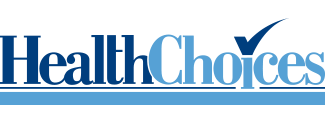Understanding Meth Addiction
Learn About Meth Addiction & Abuse
Methamphetamine, also known as meth, is a powerful and dangerous drug. Meth is a member of the stimulant family of drugs, so named because these substances increase the activity of, or stimulate, the central nervous system. The category of stimulants includes everyday substances such as caffeine, prescription medications such as Adderall and Ritalin, and illegal drugs such as cocaine, amphetamine, meth, and MDMA (Ecstasy). Meth is typically ingested orally, snorted, smoked, or dissolved and injected. When taken, meth creates a “rush” or “flash” of pleasure for a user. This rush is a result of meth’s ability to increase the brain’s available supply of dopamine, a neurotransmitter linked with motivation and feelings of pleasure. This intense experience of pleasure can cause users to repeatedly abuse meth, potentially leading to a damaging addiction. Despite meth’s potential for addiction, however, there are treatment options available for those who have found themselves trapped by this powerful drug.
Statistics
Meth Abuse Statistics
The fifth edition of the Diagnostic and Statistical Manual of Mental Disorders estimates that about 0.2 percent of people aged 12 and older have abused an amphetamine-type stimulant within the last year. Intravenous use is approximately three or four times more common in men than in women, though this difference only occurs among users who inject the drug. Data from the 2012 National Survey on Drug Use and Health (NSDUH) give a slightly higher estimate, indicating that approximately 0.4 percent of the population, or 1.2 million people, have used meth within the past year.
Causes and Risk Factors
Causes and Risk Factors for Meth Abuse
As with many mental health and substance use disorders, many different factors can influence one’s risk of developing a meth use disorder, such as:
Environmental: People who were exposed to meth before birth or during childhood are at a greater risk of abusing meth later in life. In addition, those who have been exposed to community violence, grew up in unstable homes, have mental health conditions, and who associate with meth dealers and users are more likely to develop meth use disorders.
Risk Factors:
- Presence of co-occurring mental health disorders
- Personal history of other substance use disorders
- Family history of substance use disorders
- Impulsive personality
- Exposure to meth in the womb
- Exposure to trauma
- Experiencing community violence
- Having an unstable home environment
- Being around meth dealers or users
Signs and Symptoms
Signs and Symptoms of Meth Abuse
People who are struggling with meth abuse may experience a number of signs and symptoms of abuse, such as:
Behavioral symptoms:
- Continuing to use meth even though use is having a negative psychological or physical effect on the person
- Using meth even in situations where use may be physically hazardous
- Neglecting social, occupational, academic, or recreational activities or obligations in favor of using meth
- Spending a great deal of time using meth, obtaining meth, or recovering from meth use
- Being unsuccessful in attempts to reduce meth use
- Using more meth, or over a longer period of time, than a person intends
Physical symptoms:
- Abnormally slow or fast heart rate
- Dilated pupils
- Blood pressure fluctuations
- Sweating or chills
- Nausea
- Vomiting
- Weight loss
- Abnormally slow or fast movement
- Weakness
- Slowed breathing
- Seizures
- Unconsciousness
- Withdrawal, which a series of uncomfortable symptoms one experiences when attempting to discontinue meth use
- Experiencing tolerance, wherein a person requires a larger dose of meth in order to achieve a high
Cognitive symptoms:
- Confusion
- Cravings for meth
Psychosocial symptoms:
- Continuing to use meth despite experiencing significant interpersonal problems resulting from meth use
Effects
Effects of Meth Abuse
If a person’s meth use continues unchecked, he or she may experience a number of negative consequences such as:
- Nasal irritation or bleeding
- Respiratory problems
- Puncture marks or “tracks”
- Onset or worsening of mental health symptoms
- Polysubstance use, addiction, or chemical dependency
- Contracting HIV or other sexually-transmitted infection from sharing needles or engaging in risky sex while high
- Malnutrition
- Weight loss
- Violent injury from associating with drug trafficking
- Engaging in illegal or dangerous activities to earn money to buy more meth
- Cognitive impairment
- Gum disease, tooth decay, and mouth sores, known as “meth mouth”
- Heart attack
- Stroke
- Seizures
Co-Occurring Disorders
Meth Abuse & Co-Occurring Disorders
Unfortunately, people with meth use disorder may also meet criteria for other mental health disorders, such as:
- Other substance use disorders
- Posttraumatic stress disorder (PTSD)
- Antisocial personality disorder
- Attention-deficit/hyperactivity disorder (ADHD)
- Gambling disorder
Withdrawal and Overdose
Effects of Meth Withdrawal and Overdose
Effects of meth withdrawal: If a person uses meth for an extended period of time and then attempts to discontinue use, he or she may experience a series of extremely uncomfortable symptoms as his or her body readjusts to functioning without the presence of meth. These symptoms may include:
- Fatigue or tiredness
- Oversleeping
- Having trouble sleeping
- Vivid unpleasant dreams
- Increased appetite
- Slowed movement
- Slowed thought processes
- Agitation
Effects of meth overdose: If a person takes more meth than his or her body can safely metabolize or excrete, he or she will experience an overdose. Meth overdoses are extremely dangerous and can be fatal. If someone who has been using meth is experiencing some of the following symptoms, he or she should receive medical attention immediately:
- Chest pain
- Heart attack
- Difficulty breathing
- Agitation
- Organ damage
- Stomach pain
- Heart attack
- Paranoia
- Seizures
- Stroke
- Coma




